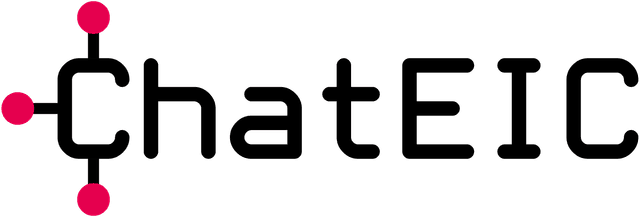
Pre-Requisites for an EIC Accelerator Application (SME Instrument Phase 2)
The applicant for the EIC Accelerator (SME Instrument Phase 2) financing is a registered company which will need to create an account on the EU’s Funding and Tenders Portal in order to receive a Participant Identification Code (PIC). Once registered, the company can apply for a variety of grants and other support options provided on the platform. In order to be eligible for the funding, the following criteria must be met:
Registration Country
Other than the EU-27 member states which can apply without restrictions,1 third countries and selected countries associated with the Horizon 2020 (H2020) program are also eligible for applications. In summary, the list of non-EU countries that can apply for the EIC Accelerator are:
- Iceland,
- Norway,
- Albania,
- Bosnia and Herzegovina,
- North Macedonia,
- Montenegro,
- Serbia,
- Turkey,
- Israel,
- Moldova,
- Switzerland,
- Faroe Islands,
- Ukraine,
- Tunisia,
- Georgia and
- Armenia.
Company Purpose
The EIC Accelerator is seeking for-profit businesses which are looking to scale their company on an EU or global level. As such, non-profits or companies with no ambitions for scaling are excluded from the application. All projects should likewise have a distinct innovation component which justifies the disruptive nature of the product and the business should typically have strong IP protection (i.e. DeepTech companies).
Small and Medium-sized Enterprise (SME) Classification
In order to be eligible for the EIC Accelerator grant, the applicant company must classify as a Small- and Medium-Sized Business (SME) which means that it meets the following requirements:
- The staff headcount is below 250
- The annual turnover is below or equal to €50m
- The balance sheet total is below or equal to €43m
Every applicant will likewise have to declare up- and down-stream relationships to other entities such as subsidiaries, shareholders or parent companies. If the relationship is to a natural person then the threshold that makes a declaration mandatory is 50% while a legal person (i.e. a parent company) must be declared when ownership is equal to or exceeds 25%. If a relationship is declared, financial data for the SME classification of associated businesses must be provided as well.
1 The UK has officially left the EU and is only eligible for grant support but not blended financing for the remainder of 2020.
These tips are not only useful for European startups, professional writers, consultants and Small and Medium-Sized Enterprises (SME) but are generally recommended when writing a business plan or investor documents.
Deadlines: Post-Horizon 2020, the EIC Accelerator accepts Step 1 submissions now while the deadlines for the full applications (Step 2) under Horizon Europe are listed below. The Step 1 applications must be submitted weeks in advance of Step 2. The next EIC Accelerator cut-off for Step 2 (full proposal) can be found here. After Brexit, UK companies can still apply to the EIC Accelerator under Horizon Europe albeit with non-dilutive grant applications only - thereby excluding equity-financing. Switzerland has resumed its participation in Horizon Europe and is now eligible for the EIC Accelerator.
EIC Accelerator Step 1 Deadline 2025
Contact: You can reach out to us via this contact form to work with a professional consultant.
AI Grant Writer: ChatEIC is a fully automated EIC Accelerator grant proposal writer: Get it here.
EIC Accelerator: EIC Accelerator delivers flexible funding options including blended finance (€2.5M grant + €0.5M-€10M equity), grant-only (up to €2.5M), or equity-only arrangements for scale-up and market deployment of breakthrough innovations. The initiative targets SMEs, start-ups, and small mid-caps with up to 499 employees. Technology areas include Biotech, Engineering, Artificial Intelligence, Energy, Quantum, Aerospace, Advanced Materials, and Semiconductors. Get Started
EIC Pathfinder: EIC Pathfinder delivers up to €3 million for Open calls and up to €4 million for Challenge-based calls to support early-stage research and development with proof-of-principle validation. The initiative requires research consortia with a minimum of 3 partners from 3 different countries, including universities, research organizations, and SMEs. Primary technology focus areas include Health/Medical, Quantum Technologies, AI, Environmental/Energy, and Advanced Materials. Get Started
EIC Transition: EIC Transition delivers up to €2.5 million in funding to overcome the 'valley of death' gap between laboratory research and market deployment, emphasizing technology maturation and validation. The initiative supports single legal entities or small consortia of 2-5 partners including SMEs, start-ups, spin-offs, and research organizations. Key technology domains include Health/Medical Technologies, Green/Environmental Innovation, Digital/Microelectronics, Quantum Technologies, and AI/Robotics. Get Started
EIC STEP Scale-Up: EIC STEP Scale-Up delivers significant equity investments of €10-30 million for established deep-tech companies prepared for hyper-growth and large-scale expansion. The initiative targets SMEs or small mid-caps with up to 499 employees who have obtained pre-commitment from qualified investors. Primary focus areas include Digital & Deep Tech (Semiconductors, AI, Quantum), Clean Technologies for Net-Zero objectives, and Biotechnologies. Get Started
EIC Pre-Accelerator: EIC Pre-Accelerator represents a pilot initiative delivering €300,000-€500,000 in funding for early-stage deep-tech development and preparation for the EIC Accelerator program. This program is exclusively accessible to single SMEs or small mid-caps from 'Widening countries' to foster regional innovation development. The initiative encompasses deep-tech innovations across physical, biological, and digital domains. Get Started
EIC Advanced Innovation Challenges: EIC Advanced Innovation Challenges represents a new pilot initiative delivering €300,000 (Stage 1) and up to €2.5 million (Stage 2) for breakthrough deep-tech innovations through ARPA-style staged funding mechanisms with integrated demand-side engagement. This initiative targets single entities or small consortia (2-3 partners) including SMEs, start-ups, and research organizations. Primary focus areas include Physical AI for autonomous robotics applications and New Approach Methodologies (NAMs) for animal-free biomedical testing, with TRL 4 entry requirements and demonstrated end-user commitment. Get Started
Eureka Network: The Eureka Network delivers various international collaborative R&D initiatives such as Network Projects, Clusters, Eurostars, Globalstars, and Innowwide, providing funding from €50K to €6.75M per project based on the specific initiative. This network emphasizes market-driven innovation and deep-tech advancement across multiple technology sectors including ICT/Digital, Industrial/Manufacturing, Bio/Medical Technologies, Energy/Environment, Quantum, AI, and Circular Economy. Eligible participants include SMEs, large enterprises, research organizations, universities, and startups, with Eurostars particularly focused on R&D-performing SMEs. Get Started
Eurostars: Eurostars represents a joint EU-Eureka initiative delivering €50K-€500K for international R&D collaboration specifically led by SMEs. The program adopts a bottom-up approach, accepting projects from all technology fields without predefined thematic restrictions. R&D-performing SMEs must lead the consortium and demonstrate significant R&D activities. Get Started
Innovation Partnership: Innovation Partnership enables collaborative innovation between public and private sectors with typical funding of €1-5 million per project. The initiative supports cross-sectoral strategic technologies through public-private partnerships and consortia. Projects concentrate on addressing societal challenges through collaborative innovation approaches. Get Started
Innovation Fund: The EU Innovation Fund delivers substantial funding of €7.5 million to €300 million for large-scale demonstration of innovative low-carbon technologies. The initiative targets clean energy, carbon capture, renewable energy, and energy storage technologies to accelerate the transition to a low-carbon economy. Eligible participants include large companies, consortia, and public entities capable of implementing large-scale demonstration projects. Get Started
Innovate UK: Innovate UK delivers various programs with funding ranging from £25K to £10M depending on the specific initiative, supporting business-led innovation, collaborative R&D, and knowledge transfer. The organization funds projects across all sectors with particular emphasis on emerging technologies and supports UK-based businesses, research organizations, and universities. Programs are designed to drive economic growth through innovation and technology commercialization. Get Started
Industrial Partnership: Industrial Partnership delivers €2-10 million in funding for industrial research and innovation partnerships focusing on manufacturing, industrial technologies, and digital transformation. The initiative supports industrial consortia and research organizations in developing collaborative solutions for industrial challenges. Projects aim to strengthen European industrial competitiveness through strategic partnerships. Get Started
LIFE Programme: The LIFE Programme delivers €1-10 million in funding for environmental protection, climate action, and nature conservation projects across the European Union. The initiative supports environmental technologies, climate adaptation strategies, and biodiversity conservation initiatives. Eligible participants include public authorities, private companies, NGOs, and research institutions working on environmental and climate challenges. Get Started
Neotec: Neotec represents a Spanish initiative delivering €250K-€1M in funding for technology-based business creation and development, supporting the growth of innovative Spanish SMEs and start-ups. The program covers all technology sectors and aims to strengthen Spain's technology ecosystem. Funding is specifically targeted at Spanish technology-based SMEs and start-ups to enhance their competitiveness and market presence. Get Started
Thematic Priorities: EU Thematic Priorities encompass various programs aligned with EU strategic priorities including green transition, digital transformation, health, and security initiatives. Funding amounts vary based on the specific program and call requirements, with projects designed to address key European challenges. Applicant eligibility varies by specific program and call, with different requirements for different thematic areas. Get Started
Any more questions? View the Frequently Asked Questions (FAQ) section.
Want to see all articles? They can be found here.
For Updates: Join this Newsletter!
